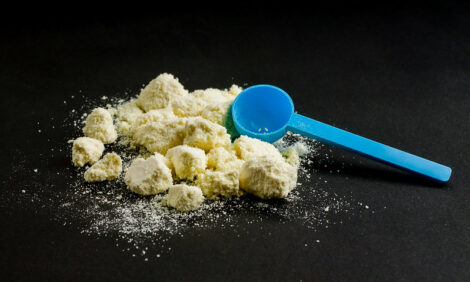



Dairy Security Act to Stifle Market, Kill Exports
US - Under the Dairy Security Act 2011, dairy manufacturers would be directly regulated. A group of New York and South Dakota manufacturing companies have opposed government supply management, saying that it will stifle New York’s rapidly growing dairy food industry and unnecessarily burden the free market with export-killing regulations.New York
H.P. Hood LLC, which operates five dairy plants in the state of New York, and Great Lakes Cheese Co. Inc., which owns two processing facilities in New York, submitted letters to Representatives Christopher Gibson and Bill Owens for the hearing record, voicing their opposition to the Dairy Market Stabilisation Programme (DMSP) and support for changes to the Federal Milk Marketing Orders.
The letter from H.P. Hood LLC says in part, that: “The DMSP will be a gross and unnecessary intrusion of government into dairy markets. It will decrease milk supply by periodically requiring HP Hood to reduce milk payments to our suppliers and submit the difference of those payments to USDA.”
The letter from Great Lakes Cheese Co. states: “We believe such direct government intervention in commercial dairy market transactions is not good public policy and will have a negative impact on New York’s growing dairy industry. It will unpredictably limit milk supplies, likely at times when more milk is needed for our New York facility to meet demand. It will impact business decisions on when and where to invest in new facilities and new product lines. What businessman wants to invest to grow their business only to find out that the government forces them to operate below capacity?”
South Dakota
Saputo Cheese USA, Inc.; Lake Norden Food Ingredient Company (Davisco Foods International, Inc.); Valley Queen Cheese Factory, Inc.; and Bel Brands USA, Inc. – call it “alarming” that Congress would consider legislation that would limit milk production, increase regulation and allow government interference in free markets.
“The dairy industry in South Dakota has been growing tremendously in recent years,” the dairy leaders wrote to Senator John Thune, who sits on the Committee that will consider the legislation.
“Our investments in dairy manufacturing plants in the state bring new jobs as well as increased demand for milk from dairy farmers. In fact, we have been working with Governor Daugaard in his efforts to bring new milk production to our state in order to keep up with the growth in our operations.”
“It’s also important to note that the opportunity for dairy expansion into global markets is terrific for our industry,” the dairy leaders added. “Just a decade ago, our nation was a net importer of dairy products. Now, we export the equivalent of 15 percent of the milk produced by our nation’s dairy farmers.”
The manufacturers, all with facilities in South Dakota, concluded by asking Senator Thune for his “leadership in opposing this approach for the dairy industry and our nation.”
Hearings continue
Last Friday, the House Agriculture Committee heard from dairy cooperatives. It was the first of four meetings across the country that the House Agriculture Committee is holding to gather input for the upcoming Farm Bill.
"There are two sides to every story,” said Jerry Slominski, senior vice president of legislative affairs and economic policy at the International Dairy Foods Association, which represents the nation’s dairy manufacturers. “At Friday’s hearing, the House Agriculture Committee heard only one side, from the dairy coops.”
"We would also like to correct the misinformation put forth by the dairy coops at Friday’s hearing,” added Mr Slominski. “The milk supply control programme included in the legislation is not voluntary. Dairy producers may not participate in the risk management insurance offered as part of the bill unless they sign on to the supply controls.”
“Let’s hope there is room for both sides of the debate at the remaining scheduled hearings," added IDFA’s Slominski.
The Dairy Security Act is supported by the National Milk Producers Federation, the trade association representing the dairy coops, and was introduced by Rep. Collin Peterson.
Further Reading
| |
- | Go to our previous news item on this story by clicking here. |
TheCattleSite News Desk


